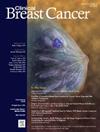Effective Strategies for the Prevention and Mitigation of Phosphatidylinositol-3-Kinase Inhibitor-Associated Hyperglycemia: Optimizing Patient Care
IF 2.9
3区 医学
Q2 ONCOLOGY
引用次数: 0
Abstract
Hyperglycemia is a common adverse event (AE) associated with phosphatidylinositol-3-kinase inhibitors (PI3Kis) and considered an on-target effect. Presence of hyperglycemia is associated with poor outcomes in patients with cancer, and there is need for further refinement of hyperglycemia prevention and mitigation strategies in patients receiving PI3Kis. In this review, the authors highlight effective strategies for preventing PI3Ki-induced hyperglycemia before and during treatment as well as hyperglycemia management. Prior to initiating treatment with PI3Ki, identify baseline risk factors of patients at increased risk for developing hyperglycemia, which include older age, obesity, and glycosylated hemoglobin (HbA1c) 5.7%-6.4% (prediabetes or Type 2 diabetes). To prevent new-onset hyperglycemia, optimize blood glucose, and recommend a low-carbohydrate (60-130 g/day) diet along with regular exercise to all patients prior to initiating the PI3Ki. Prophylactic metformin may be considered in all patients starting a PI3Ki with HbA1c ≤6.4%. Although existing recommendations support monitoring fasting blood glucose (FBG) once weekly (twice-weekly for intermediate-risk, daily for high-risk patients) and HbA1c every 3 months upon initiation of PI3Ki, more frequent FBG monitoring may be considered for prompt detection of hyperglycemia. Experts also recommend considering postprandial glucose monitoring because it is an early indicator of glucose intolerance. If hyperglycemia develops, metformin (first-line) and/or sodium glucose co-transporter 2 inhibitors or thiazolidinediones (second-/third-line) are the preferred agents; consider early referral to an endocrinologist. In conclusion, hyperglycemia is a common but manageable AE associated with PI3Kis. Multidisciplinary approach to the prevention, monitoring, and management of hyperglycemia optimizes patient care and allows patients to maintain therapy on PI3Ki.
预防和缓解磷脂酰肌醇-3-激酶抑制剂相关高血糖症的有效策略:优化患者护理。
高血糖是与磷脂酰肌醇-3-激酶抑制剂(PI3Kis)相关的常见不良事件(AE),被认为是一种靶向效应。高血糖的出现与癌症患者的不良预后有关,因此需要进一步完善预防和缓解 PI3Kis 患者高血糖的策略。在本综述中,作者重点介绍了在治疗前和治疗期间预防 PI3Ki 诱导的高血糖的有效策略以及高血糖管理。在开始使用 PI3Ki 治疗之前,应确定患者发生高血糖风险增加的基线风险因素,包括年龄较大、肥胖和糖化血红蛋白 (HbA1c) 5.7%-6.4% (糖尿病前期或 2 型糖尿病)。为预防新发高血糖,优化血糖,建议所有患者在开始服用 PI3Ki 之前,采用低碳水化合物(60-130 克/天)饮食,同时定期锻炼。对于 HbA1c≤6.4% 开始服用 PI3Ki 的所有患者,可考虑使用预防性二甲双胍。尽管现有建议支持在开始使用 PI3Ki 后每周监测一次空腹血糖 (FBG)(中危患者每周两次,高危患者每天一次),每 3 个月监测一次 HbA1c,但为了及时发现高血糖,可考虑更频繁地监测 FBG。专家还建议考虑进行餐后血糖监测,因为餐后血糖是葡萄糖不耐受的早期指标。如果出现高血糖,二甲双胍(一线)和/或葡萄糖钠协同转运体 2 抑制剂或噻唑烷二酮类药物(二线/三线)是首选药物;考虑尽早转诊至内分泌科医生。总之,高血糖是与 PI3Kis 相关的一种常见但可控的 AE。采用多学科方法来预防、监测和管理高血糖可优化患者护理,并使患者能够维持 PI3Ki 治疗。
本文章由计算机程序翻译,如有差异,请以英文原文为准。
求助全文
约1分钟内获得全文
求助全文
来源期刊

Clinical breast cancer
医学-肿瘤学
CiteScore
5.40
自引率
3.20%
发文量
174
审稿时长
48 days
期刊介绍:
Clinical Breast Cancer is a peer-reviewed bimonthly journal that publishes original articles describing various aspects of clinical and translational research of breast cancer. Clinical Breast Cancer is devoted to articles on detection, diagnosis, prevention, and treatment of breast cancer. The main emphasis is on recent scientific developments in all areas related to breast cancer. Specific areas of interest include clinical research reports from various therapeutic modalities, cancer genetics, drug sensitivity and resistance, novel imaging, tumor genomics, biomarkers, and chemoprevention strategies.
 求助内容:
求助内容: 应助结果提醒方式:
应助结果提醒方式:


